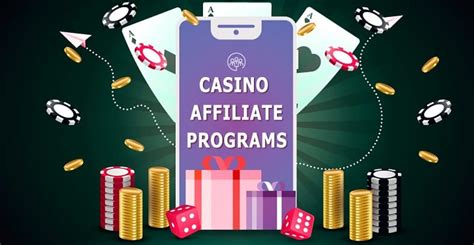The world of affiliate marketing has expanded into numerous industries, including the lucrative and highly regulated gambling sector. Affiliate gambling, also known as affiliate gaming or iGaming, involves promoting online casinos, sports betting sites, poker rooms, and other gaming platforms to potential customers. This form of marketing leverages the reach and influence of affiliates, who can range from individual bloggers to large media companies, to drive traffic and generate revenue for both the affiliate and the gambling operator. In this article, we will delve into the mechanisms and strategies behind affiliate gambling, exploring how it works, its key components, and the opportunities and challenges it presents.
Key Points
- Affiliate gambling involves promoting online gambling platforms to earn commissions.
- It operates through a network of affiliates, operators, and tracking software.
- Commission structures can vary, including revenue share, CPA, and hybrid models.
- Marketing strategies include content marketing, SEO, social media, and email marketing.
- Regulatory compliance and responsible gambling practices are crucial for success.
How Affiliate Gambling Programs Work

Affiliate gambling programs are structured around a simple yet effective principle: affiliates promote a gambling operator’s brand and services, and in return, they earn a commission for each customer they refer who meets certain criteria, such as making a deposit or placing a bet. This relationship is facilitated through affiliate programs or networks that connect affiliates with operators. These programs provide affiliates with the necessary tools, such as tracking links, banners, and promotional materials, to market the operator’s site effectively.
Affiliate Network Role
Affiliate networks play a critical role in the affiliate gambling ecosystem. They act as intermediaries between affiliates and operators, handling tasks such as tracking referrals, managing commissions, and providing support. Networks like Income Access, Commission Junction, and ShareASale have specialized platforms for iGaming, offering real-time reporting, a variety of marketing tools, and expert advice to help affiliates optimize their campaigns.
Commission Structures
The commission structure is a pivotal aspect of affiliate gambling, determining how affiliates are rewarded for their efforts. The most common models include:
- Revenue Share (RS): Affiliates earn a percentage of the revenue generated by the players they refer. This can range from 20% to 50% or more, depending on the program and the affiliate’s performance.
- Cost Per Acquisition (CPA): Affiliates receive a one-time payment for each player who meets specific conditions, such as making a first deposit.
- Hybrid Model: Combines elements of revenue share and CPA, offering affiliates a balanced approach to earning commissions.
Marketing Strategies in Affiliate Gambling
Affiliates in the gambling sector employ a variety of marketing strategies to attract potential players. These include:
- Content Marketing: Creating valuable, relevant, and consistent content to attract and retain a clearly defined audience.
- SEO (Search Engine Optimization): Optimizing websites to rank higher in search engine results pages, increasing visibility and organic traffic.
- Social Media Marketing: Leveraging social media platforms to reach a wider audience, build brand awareness, and drive traffic.
- Email Marketing: Using email campaigns to promote offers, news, and updates to subscribers.
| Marketing Strategy | Description | Effectiveness |
|---|---|---|
| Content Marketing | High-quality, engaging content | High |
| SEO | Search engine ranking improvement | Medium to High |
| Social Media | Engaging with potential players on social platforms | Medium |
| Email Marketing | Targeted campaigns to subscribers | High |

Challenges and Opportunities in Affiliate Gambling

Affiliate gambling presents both opportunities and challenges. On one hand, it offers a lucrative way for affiliates to monetize their audience and for operators to expand their customer base. On the other hand, the industry is heavily regulated, with varying laws and guidelines across different jurisdictions. Affiliates must ensure they comply with these regulations, promote responsible gambling practices, and maintain transparency with their audience.
Regulatory Compliance
Compliance with regulatory requirements is essential for affiliates and operators. This includes adhering to laws related to advertising, data protection, and age verification. In markets like the UK, the Gambling Commission has strict guidelines that affiliates must follow to avoid penalties.
Responsible Gambling
Promoting responsible gambling practices is not only a regulatory requirement but also a moral obligation for affiliates and operators. This involves providing information on gambling addiction, offering tools for players to control their spending, and encouraging responsible betting habits.
What is the primary goal of affiliate gambling?
+The primary goal of affiliate gambling is to direct potential players to online gambling sites, earning commissions based on the referrals' activities.
How do affiliate networks facilitate the relationship between affiliates and operators?
+Affiliate networks act as intermediaries, providing tracking software, managing commissions, and offering support to both affiliates and operators.
What are the key challenges faced by affiliates in the gambling industry?
+Affiliates face challenges such as regulatory compliance, promoting responsible gambling, and maintaining a competitive edge in a saturated market.
In conclusion, affiliate gambling is a complex and dynamic field that offers significant opportunities for both affiliates and operators. By understanding the mechanisms, strategies, and challenges of this industry, participants can navigate its landscape more effectively, leveraging their strengths and addressing their weaknesses to achieve success. As the iGaming sector continues to evolve, embracing technological advancements, regulatory changes, and shifting consumer behaviors, the role of affiliate marketing will remain vital, connecting operators with their target audience and driving the industry’s growth.



